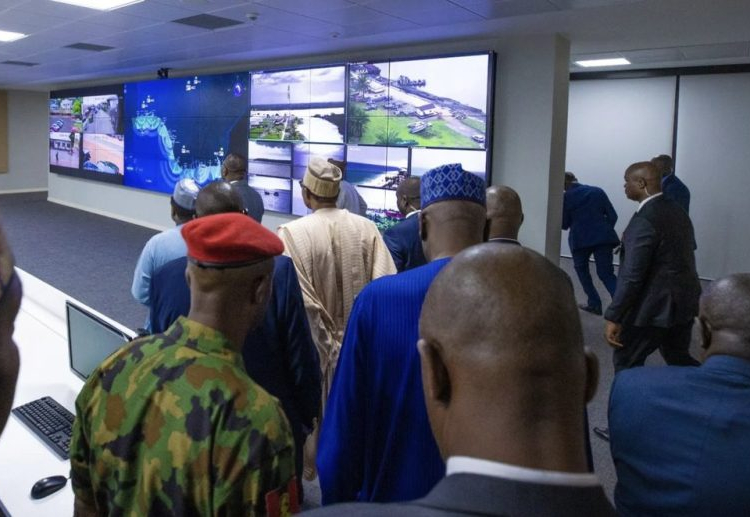President Muhammadu Buhari has inaugurated the National Counterterrorism Centre, (NCTC). This state-of-the-art facility would help the efforts at addressing evolving security challenges in the country, especially terrorism and violent extremism.
President Muhammadu Buhari has taken a monumental step towards combating terrorism in Nigeria by inaugurating the National Counterterrorism Centre (NCTC). The centre will serve as a platform to coordinate and integrate the activities of security agencies, the military and the intelligence services in order to effectively tackle the threat of terrorism.
The NCTC will be responsible for formulating and executing policies and strategies to secure the nation from terrorism. It will monitor and analyse the threat of terrorism in Nigeria, as well as the activities of terrorist groups. It will also be tasked with identifying and countering vulnerabilities in the nation’s security infrastructure, and developing strategies for the prevention, containment and disruption of terrorist activities.
Furthermore, the NCTC will provide training and capacity building to security agencies and intelligence services, as well as provide technical and operational support to enhance the nation’s counter-terrorism efforts. It will facilitate the exchange of information between security agencies and other stakeholders to ensure that all relevant information is available to make informed decisions.
Broadly speaking, the National Counter Terrorism Centre is the fusion of a myriad of security agencies dedicated to gathering intelligence and neutralizing terrorist threats.
The NCTC is a major step forward in the fight against terrorism in Nigeria, and is a testament to the government’s commitment to ensuring the safety and security of its citizens. It will be an invaluable asset in helping to protect the nation and its people from the dangers of terrorism.
The inauguration of the NCTC is a positive step towards safeguarding the nation from terrorism, and its success will depend on the willingness of all stakeholders to work together towards the common goal of eradicating terrorism from Nigeria. By leveraging the expertise and resources of all concerned agencies, the NCTC will be able to make a significant impact in the fight against terrorism.
Meanwhile, five years ago, the Nigerian Army is began developing a cyber warfare command to defend the country from cyber terrorism and other cyber vices while also aiding other military divisions with technological and online infrastructure for their operations.
The cyber command would monitor the Nigerian Army’s networks and advise Field Commanders on how to use the newly procured computer based weapons systems recently inducted to the Theatre of Operations would also have capacity to protect the Nations Critical Infrastructure.
“Plans have been concluded to send officers and soldiers of the command to attend various courses in Countries like US, Russia and the UK.”
The Nigerian Air Force (NAF) may in the near future set-up it’s own cyber warfare operations unit to combat cyber threats within its sphere of influence.
Furthermore, last year, Nigeria’s Minister of Defence Maj Gen Bashir Salihi Magashi, (rtd) restated the Federal government’s commitment to promote Cybernetics in National Defence and Security imperatives.
The Army subsequently began fielding several SVSAT120 Ka-Band Motorized VSAT Antenna mounted on Toyota Land Cruiser trucks for enhanced battlefield communications.
The SVSAT120 Ka-Band system was commissioned on Monday 13 September by the Chief of Army Staff, General Faruk Yahaya, for use by the Nigerian Army Cyber Warfare Command.
In the same vein, the Federal Government of Nigeria earlier this year inaugurated an integrated satellite called DELSAT-1 to enhance the operational capacity of the Nigerian armed forces against insecurity.
This will assist in realising the nation’s sectoral strategies that respond to identified threats to Nigeria’s national interests, such as the National Defense Policy, National Counter Terrorism Strategy and the National Policy on Public Safety and Security.
China’s 18-story Long March 3B rocket likely launched DELSAT-1 into space from the Xichang launch base in Sichuan province in southwestern China.




